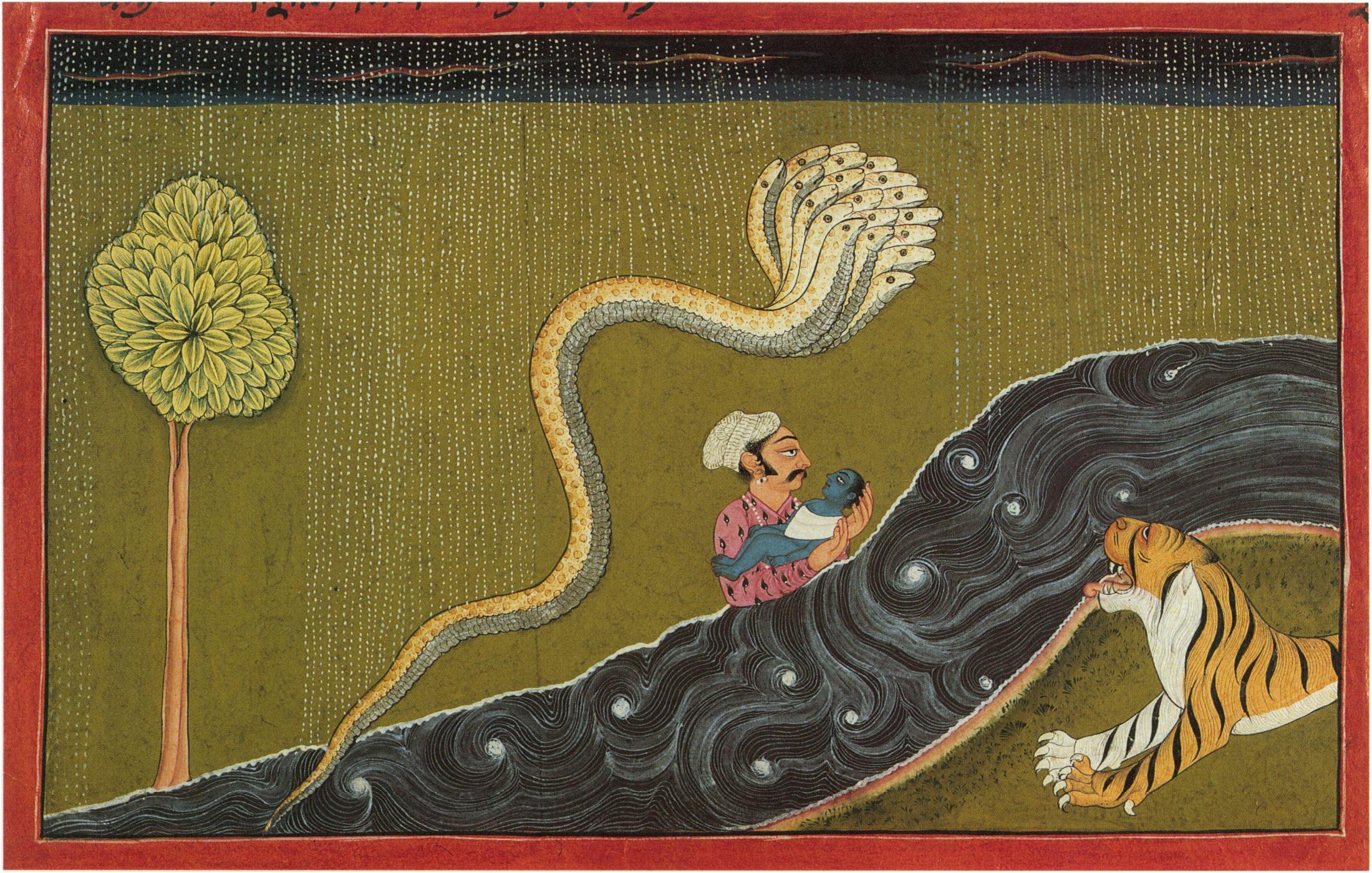|
Siddhartha (novel)
''Siddhartha: An Indian novel'' (; ) is a 1922 novel by Hermann Hesse that deals with the spiritual journey of self-discovery of a man named Siddhartha during the time of the Gautama Buddha. The book, Hesse's 9th novel, was written in German, in a simple, lyrical style. It was published in the U.S. in 1951 and became influential during the 1960s. Hesse dedicated the first part of it to Romain Rolland and the second part to Wilhelm Gundert, his cousin. The word ''Siddhartha'' is made up of two words in Sanskrit language, ''siddha'' (achieved) + ''artha'' (what was searched for), which together means "he who has found meaning (of existence)" or "he who has attained his goals". In fact, the Buddha's own name, before his renunciation, was Siddhartha Gautama, prince of Kapilavastu. In this book, the Buddha is referred to as "Gotama". Plot The story takes place in the ancient Nepalese kingdom of Kapilavastu. Siddhartha decides to leave his home in the hope of gaining spiritual illum ... [...More Info...] [...Related Items...] OR: [Wikipedia] [Google] [Baidu] |
Hermann Hesse
Hermann Karl Hesse (; 2 July 1877 – 9 August 1962) was a German-Swiss poet, novelist, and painter. His best-known works include ''Demian'', ''Steppenwolf (novel), Steppenwolf'', ''Siddhartha (novel), Siddhartha'', and ''The Glass Bead Game'', each of which explores an individual's search for Authenticity (philosophy), authenticity, self-knowledge and spirituality. In 1946, he received the Nobel Prize in Literature. Life and work Family background Hermann Karl Hesse was born on 2 July 1877 in the Black Forest town of Calw in Kingdom of Württemberg, Württemberg, German Empire. His grandparents served in India at a mission under the auspices of the Basel Mission, a Protestant Christian missionary society. His grandfather Hermann Gundert compiled a Malayalam grammar and a Malayalam-English dictionary, and also contributed to a translation of the Bible into Malayalam in South India. Hesse's mother, Marie Gundert, was born at such a mission in South India in 1842. In descri ... [...More Info...] [...Related Items...] OR: [Wikipedia] [Google] [Baidu] |
Govinda
Govinda (), also rendered Govind and Gobind, is an epithet of Vishnu which is also used for his avatars such as Krishna. The name appears as the 187th and the 539th name of Vishnu in '' Vishnu Sahasranama''. The name is also popularly addressed to Krishna, referring to his youthful activity as a cowherd boy. Vishnu, or Krishna, is regarded as the supreme God in the Vaishnava tradition and also by much of the pan-Hindu tradition. Etymology In the word "Govinda", "Govu" means ''Indriyas''. Govinda therefore means the all-pervading, omnipresent ruler of the sense organs, or ''Indriyas''. "Govu" also means 'Vedas'. Hence Govinda is the supreme being who can be known through the Vedas. Govinda can also be translated as "protector of cows". Interpretations ''Govinda'' is a name of Krishna and also appears as the 187th and 539th name of Vishnu in the Vishnu Sahasranama, the 1,000 names of Vishnu.''Sri Vishnu Sahasranama'', commentary by Sri Sankaracharya, pgs. 69 and 115, translat ... [...More Info...] [...Related Items...] OR: [Wikipedia] [Google] [Baidu] |
Buddhist
Buddhism ( , ), also known as Buddha Dharma and Dharmavinaya (), is an Indian religion or philosophical tradition based on teachings attributed to the Buddha. It originated in northern India as a -movement in the 5th century BCE, and gradually spread throughout much of Asia via the Silk Road. It is the world's fourth-largest religion, with over 520 million followers (Buddhists) who comprise seven percent of the global population. The Buddha taught the Middle Way, a path of spiritual development that avoids both extreme asceticism and hedonism. It aims at liberation from clinging and craving to things which are impermanent (), incapable of satisfying ('), and without a lasting essence (), ending the cycle of death and rebirth (). A summary of this path is expressed in the Noble Eightfold Path, a training of the mind with observance of Buddhist ethics and meditation. Other widely observed practices include: monasticism; " taking refuge" in the Buddha, the , and th ... [...More Info...] [...Related Items...] OR: [Wikipedia] [Google] [Baidu] |
Hindu
Hindus (; ) are people who religiously adhere to Hinduism.Jeffery D. Long (2007), A Vision for Hinduism, IB Tauris, , pages 35–37 Historically, the term has also been used as a geographical, cultural, and later religious identifier for people living in the Indian subcontinent. The term ''"Hindu"'' traces back to Old Persian which derived these names from the Sanskrit name ''Sindhu'' (सिन्धु ), referring to the river Indus. The Greek cognates of the same terms are "''Indus''" (for the river) and "''India''" (for the land of the river). The term "''Hindu''" also implied a geographic, ethnic or cultural identifier for people living in the Indian subcontinent around or beyond the Sindhu (Indus) River. By the 16th century CE, the term began to refer to residents of the subcontinent who were not Turkic or Muslims. Hindoo is an archaic spelling variant, whose use today is considered derogatory. The historical development of Hindu self-identity within the local In ... [...More Info...] [...Related Items...] OR: [Wikipedia] [Google] [Baidu] |
Recluse
A recluse is a person who lives in voluntary seclusion from the public and society. The word is from the Latin ''recludere'', which means "shut up" or "sequester". Historically, the word referred to a Christian hermit's total isolation from the world, with examples including Symeon of Trier, who lived within the great Roman gate Porta Nigra with permission from the Archbishop of Trier, or Theophan the Recluse, the 19th-century Orthodox Christian monk who was later glorified as a saint. Many celebrated figures of human history have spent significant portions of their lives as recluses. Causes There are many potential reasons for becoming a recluse, including but not limited to: a personal philosophy may reject consumer society; a mystical religious outlook may involve becoming a hermit or an anchorite; a survivalist may be practicing self-sufficiency; a criminal might hide away from people to avoid detection by police; or a misanthrope may lack tolerance for society. In the Ru ... [...More Info...] [...Related Items...] OR: [Wikipedia] [Google] [Baidu] |
Bhagavad Gita
The Bhagavad Gita (; sa, श्रीमद्भगवद्गीता, lit=The Song by God, translit=śrīmadbhagavadgītā;), often referred to as the Gita (), is a 700- verse Hindu scripture that is part of the epic ''Mahabharata'' (chapters 23–40 of book 6 of the Mahabharata called the Bhishma Parva), dated to the second half of the first millennium BCE and is typical of the Hindu synthesis. It is considered to be one of the holy scriptures for Hinduism. The Gita is set in a narrative framework of a dialogue between Pandava prince Arjuna and his guide and charioteer Krishna. At the start of the dharma yuddha (or the "righteous war") between the Pandavas and the Kauravas, Arjuna is preoccupied by a moral and emotional dilemma and despairs about the violence and death the war will cause in the battle against his kin. Wondering if he should renounce the war, he seeks Krishna's counsel, whose answers and discourse constitute the Gita. Krishna counsels Arjuna to "fu ... [...More Info...] [...Related Items...] OR: [Wikipedia] [Google] [Baidu] |
Upanishads
The Upanishads (; sa, उपनिषद् ) are late Vedic Sanskrit texts that supplied the basis of later Hindu philosophy.Wendy Doniger (1990), ''Textual Sources for the Study of Hinduism'', 1st Edition, University of Chicago Press, , pages 2-3; Quote: "The Upanishads supply the basis of later Hindu philosophy; they are widely known and quoted by most well-educated Hindus, and their central ideas have also become a part of the spiritual arsenal of rank-and-file Hindus." They are the most recent part of the Vedas, the oldest scriptures of Hinduism, and deal with meditation, philosophy, consciousness, and ontological knowledge; earlier parts of the Vedas deal with mantras, benedictions, rituals, ceremonies, and sacrifices.Gavin Flood (1996), ''An Introduction to Hinduism'', Cambridge University Press, , pp. 35–39A Bhattacharya (2006), ''Hindu Dharma: Introduction to Scriptures and Theology'', , pp. 8–14; George M. Williams (2003), Handbook of Hindu Mythology, Oxford Un ... [...More Info...] [...Related Items...] OR: [Wikipedia] [Google] [Baidu] |
Indian Philosophy
Indian philosophy refers to philosophical traditions of the Indian subcontinent. A traditional Hindu classification divides āstika and nāstika schools of philosophy, depending on one of three alternate criteria: whether it believes the Vedas as a valid source of knowledge; whether the school believes in the premises of Brahman and Atman; and whether the school believes in afterlife and Devas. There are six major schools of Vedic philosophy— Nyaya, Vaisheshika, Samkhya, Yoga, Mīmāṃsā and Vedanta, and five major heterodox (sramanic) schools—Jain, Buddhist, Ajivika, Ajñana, and Charvaka. However, there are other methods of classification; Vidyaranya for instance identifies sixteen schools of Indian philosophy by including those that belong to the Śaiva and Raseśvara traditions.Cowell and Gough, p. xii.Nicholson, pp. 158-162. The main schools of Indian philosophy were formalised and recognised chiefly between 500 BCE and the late centuries of the Common Era. Com ... [...More Info...] [...Related Items...] OR: [Wikipedia] [Google] [Baidu] |
Nirvana
( , , ; sa, निर्वाण} ''nirvāṇa'' ; Pali: ''nibbāna''; Prakrit: ''ṇivvāṇa''; literally, "blown out", as in an oil lampRichard Gombrich, ''Theravada Buddhism: A Social History from Ancient Benāres to Modern Colombo.'' Routledge) is a concept in Indian religions (Buddhism, Hinduism, Jainism, and Sikhism) that represents the ultimate state of soteriological release, the liberation from duḥkha and '' saṃsāra''. In Indian religions, nirvana is synonymous with ''moksha'' and ''mukti''. All Indian religions assert it to be a state of perfect quietude, freedom, highest happiness as well as the liberation from attachment and worldly suffering and the ending of ''samsara'', the round of existence.Gavin Flood, ''Nirvana''. In: John Bowker (ed.), '' Oxford Dictionary of World Religions'' However, non-Buddhist and Buddhist traditions describe these terms for liberation differently. In Hindu philosophy, it is the union of or the realization of the identity of ... [...More Info...] [...Related Items...] OR: [Wikipedia] [Google] [Baidu] |
Ipso Facto
is a Latin phrase, directly translated as "by the fact itself", which means that a specific phenomenon is a ''direct'' consequence, a resultant ''effect'', of the action in question, instead of being brought about by a previous action. It is a term of art used in philosophy, law, and science. (Contrast this with the expressions "by itself" or "per se".) Aside from its technical uses, it occurs frequently in literature, particularly in scholarly addenda: e.g., "Faustus had signed his life away, and was, , incapable of repentance" (from Christopher Marlowe, ''The Tragical History of Dr. Faustus'') or "These prejudices are rooted in the idea that every tramp is a blackguard" (from George Orwell, ''Down and Out in Paris and London''). Its use is also found in rabbinic writings: "If a man sells a house, he sells with it the door." In Catholic canon law denotes the automatic character of the loss of membership in a religious body by someone guilty of a specified action. Within t ... [...More Info...] [...Related Items...] OR: [Wikipedia] [Google] [Baidu] |
Vasudeva
According to Hindu scriptures, Vasudeva (Sanskrit: वसुदेव, IAST: ''Vasudeva''), also called Anakadundubhi, (''anakas'' and ''dundubhis'' both refer to ''drums'', after the musicians who played these instruments at the time of his birth), is the father of the Hindu deities Krishna (Vāsudeva, i.e. "son of Vasudeva"), Balarama, and Subhadra. He was a king of the Vrishnis, and a Yadava prince. The son of the Yadava king Shurasena, he was also the cousin of Nanda, the foster-father of Krishna. His sister Kunti was married to Pandu. The patronymic ' (with a pronounced ''ā'') is a popular name of Krishna, the son of Vasudeva and Devaki. "Vāsudeva" is a vṛddhi, a derivative of the short form "Vasudeva", a linguistic pragmatic in Sanskrit signifying "of, belonging to, descended from". "Vasudeva" as an object of worship in Hinduism usually refers to the son (Krishna), rather than his father Vasudeva. Family Vasudeva was born to the Yadava king Shurasena in the Surase ... [...More Info...] [...Related Items...] OR: [Wikipedia] [Google] [Baidu] |

.jpg)


.png)


